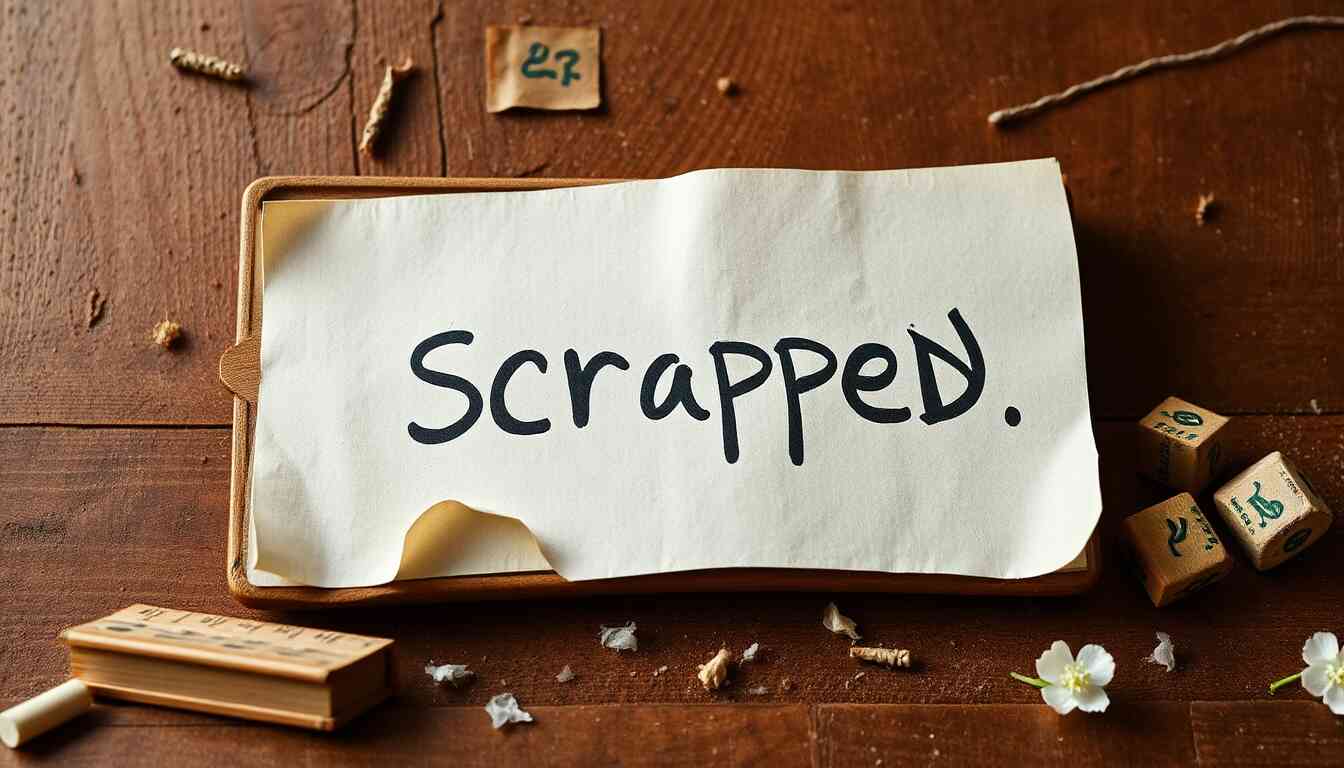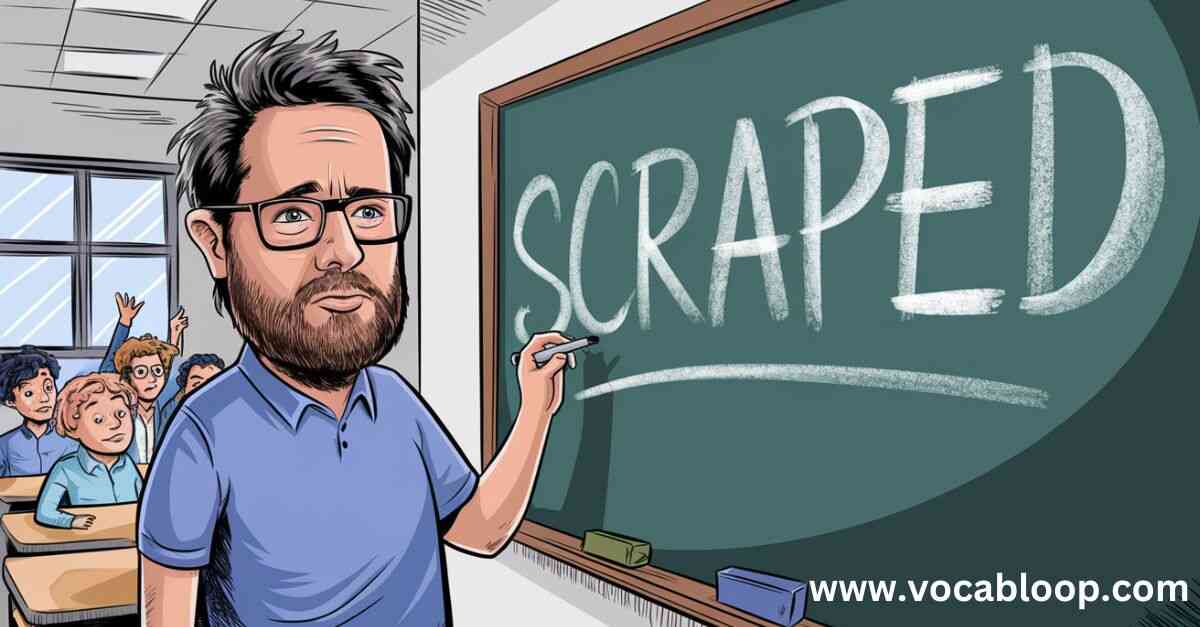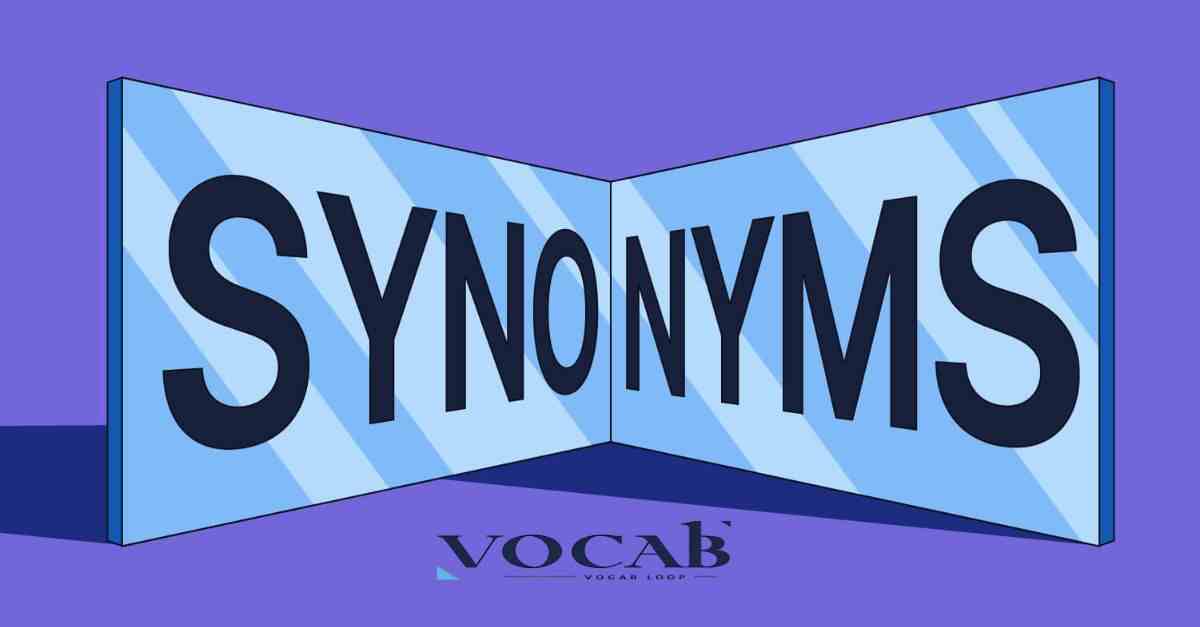Ever found yourself unsure whether to use “scrapped” or “scraped” in a sentence. These words often confuse even seasoned writers. While they sound similar, their meanings and usages differ significantly. Choosing the wrong one can alter the entire message you’re trying to convey.
In this article, we’ll explore the roots of this confusion, clarify the definitions of each word, and provide examples to ensure you use them correctly in your writing. Let’s unravel this word puzzle together!
Introduction
In our daily chats and writing, picking the right word can make a big difference. “Scrapped” and “scraped” might sound alike, but they mean very different things. Using the wrong one can change your whole message!
Here’s what we’ll cover:
- Why these words get mixed up
- What each word really means
- How to use them right
- Cool facts about where they come from
So, let’s roll up our sleeves and get to the bottom of this word puzzle!
The Root of the Confusion
Phonetic similarities
“Scrapped” and “scraped” sound almost the same when we say them. They’re what language experts call “near-homophones” – words that sound really close but aren’t quite twins.
Contextual overlaps
Sometimes, these words pop up in similar situations, which adds to the mix-up. For example:
- “I scrapped the old car.” (Got rid of it)
- “I scraped the old paint off the car.” (Removed it from the surface)
See how both involve getting rid of something? That’s where things get tricky!
Common misuses in everyday language
People often swap these words without realizing it. Here are some examples:
- Wrong: “We scraped the project.” (Unless you’re literally scraping something off the project!)
- Right: “We scrapped the project.” (Meaning we abandoned it)
Diving into “Scrapped”

Definition and core meaning
“Scrapped” is the past tense of “scrap,” which means to get rid of something or throw it away. It’s all about discarding or abandoning things.
Key points about “scrapped”:
- It’s about getting rid of something completely
- Often used for plans, projects, or objects
- Implies a decision was made to stop or discard
Etymology and historical usage
The word “scrap” comes from Old Norse “skrapa,” meaning “to scrape.” Over time, it evolved to mean “small piece” or “fragment.” By the 1800s, people started using it to mean “discard” or “abandon.”
Modern applications across industries
Today, “scrapped” is used in many fields:
- Manufacturing: “The faulty parts were scrapped.”
- Business: “We scrapped the old marketing plan.”
- Technology: “The outdated software was scrapped.”
Exploring “Scraped”

Multiple definitions and contexts
“Scraped” is the past tense of “scrape,” and it’s got a few tricks up its sleeve:
- To remove something from a surface: “I scraped the mud off my shoes.”
- To barely achieve something: “We scraped by with a passing grade.”
- In data science, to collect info from websites: “We scraped data from social media sites.”
Evolution of meaning over time
The word “scrape” has been around since Old English, originally meaning “to scratch.” Over centuries, it picked up new meanings:
- 1400s: “To remove by rubbing”
- 1800s: “To barely succeed”
- 2000s: “To gather data from websites”
Literal vs. figurative uses
- Literal: “I scraped my knee when I fell.”
- Figurative: “We scraped together enough money for dinner.”
Comparative analysis table
| Aspect | Scrapped | Scraped |
|---|---|---|
| Primary meaning | Discarded, abandoned | Removed from surface |
| Secondary meaning | N/A | Barely achieved |
| Tech meaning | N/A | Collected data |
| Typical objects | Plans, projects, items | Paint, data, surfaces |
| Implies | A decision | An action |
Scrapped vs Scraped

Key differences in usage
- “Scrapped” is about ending or discarding something entirely.
- “Scraped” usually involves removing something from a surface or gathering data.
Potential pitfalls and how to avoid them
Watch out for these common mistakes:
- Don’t say “scraped the idea” when you mean “scrapped the idea.”
- Be careful with “scraped by” (barely succeeded) vs. “scrapped by” (doesn’t make sense).
Pronunciation Guide
“Scrapped”: Phonetic breakdown
- Pronounced: /skræpt/
- Rhymes with “trapped”
“Scraped”: Proper pronunciation
- Pronounced: /skreɪpt/
- Rhymes with “draped”
Regional variations and common mistakes
Some people might say “scra-ped” (two syllables) instead of the correct “scraypt” (one syllable). In some accents, “scrapped” and “scraped” might sound almost identical.
Contextual Clarity: Examples in Use

“Scrapped” in sentences: From industry to everyday life
- “The company scrapped its plans for a new product line.”
- “We scrapped the old fridge when we renovated the kitchen.”
- “The movie script was scrapped after negative feedback.”
“Scraped” in various contexts: Physical to digital
- “She scraped the burnt toast before eating it.”
- “The team scraped a win in the final seconds of the game.”
- “The researcher scraped Twitter data for their study.”
Misuse examples and corrections
- Incorrect: “I scraped my old bicycle and bought a new one.”
- Correct: “I scrapped my old bicycle and bought a new one.”
Industry-Specific Applications
“Scrapped” in manufacturing and recycling
In these industries, “scrapped” is a big deal:
- Auto manufacturing: “We scrapped 2% of parts due to defects.”
- Recycling: “The scrapped metal is melted down for reuse.”
“Scraped” in data science and web development
“Scraped” has a special meaning in tech:
- “We scraped product prices from competitor websites.”
- “The app scrapes weather data from multiple sources.”
Usage in journalism and media
Both words pop up in news:
- “The controversial bill was scrapped after public outcry.”
- “Reporters scraped social media for eyewitness accounts.”
Digital Age Implications

“Scrapped” in project management software
Many apps use “scrapped” for canceled tasks:
- “Mark completed tasks as ‘Done’ and canceled ones as ‘Scrapped.'”
“Scraped” in the context of data collection
“Scraped” is huge in the world of big data:
- Companies scrape websites for market research.
- Scientists scrape social media for behavior studies.
Impact on SEO and content creation
Using these words right can affect your website’s search ranking:
- “Scrapped” might be important for business or tech sites.
- “Scraped” could be key for data science or DIY blogs.
Synonyms and Related Terms

Alternatives for “scrapped”
- Discarded
- Abandoned
- Canceled
- Jettisoned
Synonyms for “scraped”
- Scratched
- Abraded
- Grazed
- Gathered (for data)
Choosing the right word for the right context
Think about what you’re really trying to say:
- Getting rid of something entirely? Go with “scrapped” or its synonyms.
- Removing something from a surface? “Scraped” is your go-to.
The Etymology Evolution
“Scrapped”: From physical scraps to metaphorical discard
- Old Norse “skrapa” → English “scrap” (noun) → “to scrap” (verb)
“Scraped”: From abrasion to data collection
- Old English “scrapian” → Middle English “scrapen” → Modern English “scrape”
How meanings have shifted with technological advances
- “Scrapped” stayed pretty much the same.
- “Scraped” got a whole new meaning with the rise of the internet.
Grammar and Usage Tips
Verb forms and tenses
Both words follow regular verb patterns:
- Scrap → Scrapped → Have scrapped
- Scrape → Scraped → Have scraped
Idiomatic expressions
- “Scraping the bottom of the barrel” (using the last available resource)
- “Scrapped for parts” (dismantled for useful components)
Style guide recommendations
- AP Style Guide: Use “canceled” instead of **”scrapped”
** in formal writing.
- Tech blogs: “Scraped” is accepted jargon for data collection.
Memory Tricks and Learning Aids
Mnemonic devices for correct usage
- “Scrapped” has two P’s – think “Project Pitched.”
- “Scraped” has one P – think “Paint Peeled.”
Visual aids and infographics
Imagine two scenes:
- “Scrapped”: A blueprint in a trash can.
- “Scraped”: A spatula scraping batter from a bowl.
Practice exercises for mastery
Fill in the blanks:
- The team __ (scrapped/scraped) the project after budget cuts.
- She __ (scrapped/scraped) her knee when she fell off her bike.
(Answers: 1. scrapped, 2. scraped)
Expert Insights
Linguists’ perspectives on the scrapped/scraped confusion
Dr. Word Wizard says: “The scrapped/scraped mix-up shows how similar-sounding words can cause big meaning changes. It’s a classic case of ‘eggcorns’ – misheard words that make a new kind of sense.”
Industry professionals’ usage preferences
- Tech industry: Prefers “deprecated” over “scrapped” for old software.
- Data scientists: Regularly use “scraped” for data collection.
Trends in usage and future predictions
- “Scrapped” might see less use as “canceled” becomes more common.
- “Scraped” in the data sense is likely to grow with big data trends.
FAQs
Can “scrapped” ever refer to physical actions, like “scraped”?
Not typically. “Scrapped” is about discarding or abandoning something entirely, while “scraped” refers to removing material or achieving something minimally.
Why do people often confuse these two words?
The confusion arises because they are near-homophones (sound similar) and may occasionally be used in overlapping contexts, like eliminating something (e.g., scrapping a plan vs. scraping off details).
How is “scraped” used differently in digital contexts compared to physical ones?
In digital contexts, “scraped” means collecting data from sources like websites. Physically, it refers to removing a surface layer, like paint or dirt.
Are there idiomatic expressions that use “scrapped” or “scraped”?
Yes. Examples include “scrapped for parts” (dismantled for reuse) and “scraping the bottom of the barrel” (using the last or worst resource).
What’s a quick way to decide whether to use “scrapped” or “scraped”?
Ask yourself: Am I discarding or abandoning something? If yes, use “scrapped.” Am I removing something or achieving barely? If yes, use “scraped.”
Conclusion
Whew! We’ve dug deep into the world of “scrapped” and “scraped.” Let’s wrap it up:
- “Scrapped” means to discard or abandon something.
- “Scraped” usually means to remove something from a surface (or gather data in tech talk).
Remember, context is key. Are you getting rid of something completely, or just removing a layer? That’s your clue to pick the right word. Keep practicing, and soon you’ll be a pro at using both “scrapped” and “scraped” correctly. Now that’s what I call achieving linguistic excellence!

Alex Hormozi is a seasoned blogger at Vocab Loop, known for his deep insights into language, vocabulary, and grammar. With years of experience in writing, Alex shares practical tips and effective strategies to help readers improve their linguistic skills and enhance their writing abilities.

